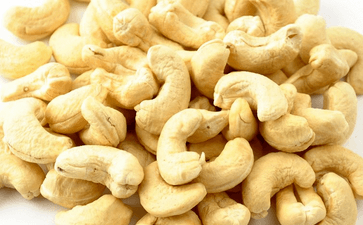Ghana has assumed the presidency of the Consultative International Cashew Council (CICC).
The country takes over the reign of CICC, an international organisation with legal capacity and financial autonomy responsible for promoting the sustainable development of cashew in the world, from Côte d’Ivoire at the end of April 2024.
The CICC seeks to provide a framework for consultation and to promote the development of the cashew sector in Member States through the coordination of policies and cooperation between States.
Mr Yaw Frimpong Addo, a Deputy Minister for Food and Agriculture in charge of Crops told the Ghana News Agency (GNA) that Ghana’s mandate commenced from April 2024 to April 2025.
He expressed joy, noting that the country had been preparing for the position over the years by putting in place regulations and structures.
Mr Addo said leading the 11-member Organisation would be an opportunity to leverage and learn from other countries’ best practices in production, processing and accessing funding opportunities.
“Some of the countries like Cote d’Ivoire are advancing from production to marketing so, we will leverage that to build ours,” he said.
Mr William Agyapong Quaittoo, the Chief Executive Officer of the Tree Development Authority, told the GNA that leading the CICC would offer Ghana many opportunities, including foreign investment to conduct research and upscale sustainable initiatives.
“Any institution that wants to do any business or study on cashew will first have to start from Ghana even though the Secretariat of CICC is in Cote d’Ivoire. Through this, the sector will build its capacity and harness the potential to benefit actors, especially farmers,” he said.
Cocoa, he said, had been one of Ghana’s foreign exchange earners for over 50 years, however, climate change and other challenges were declining its production hence the need to develop the cashew sector to take over.
Mr Quaittoo stated that the production of cashew had increased in the last three years from 100, 000 metric tonnes to over 250,000 metric tonnes.
He said it was the aim of the country to produce and process about 50 per cent of cashews instead of the current situation where 90 per cent was exported as tax free.
The CICC members are; Benin, Burkina Faso, Cameroon, Côte d’Ivoire, Ghana, Guinea, Guinea-Bissau, Mali, Nigeria, Senegal, and Togo.
Established on the 18th of November 2016 in Abidjan, Côte d’Ivoire, the CICC aims to create a consultation framework and synergies between member states for a sustainable cashew sector.
Africa’s cashew industry has come up strongly in recent years as one with enormous potential and one that can significantly contribute to the economic growth of the continent.
About 60 per cent of the world’s global raw cashew nuts are produced in Africa, with Cote d’Ivoire being the world’s leading producer, producing one million tons in 2021.
Source: GNA














